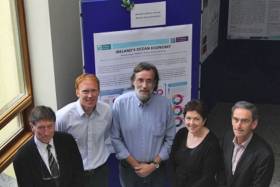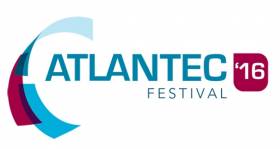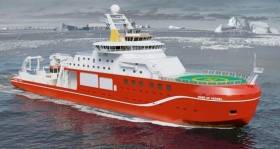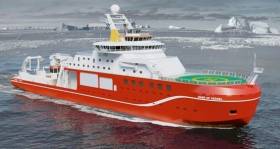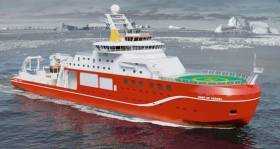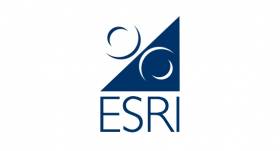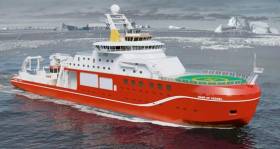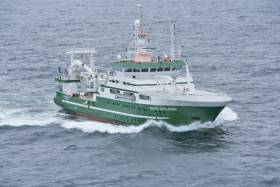Displaying items by tag: research
IFI Recruiting Fish Community Modeller
#Jobs - Inland Fisheries Ireland (IFI) is recruiting a Fish Community Modeller on a temporary basis (circa 18 months) to work in its research department based in Citywest with occasional requirement to travel to Queens University Belfast (QUB) as part of the role.
The successful candidate will report to a senior research officer and will be tasked with developing a realistic mathematical model of predator-prey interactions in lake fish communities.
The model will take account of existing knowledge relating to focal species, including population dynamics, life-history strategies, feeding ecology, behaviour and physiology and will be used to evaluate the ecological consequences of fisheries management strategies.
They will also be required to contribute to publication of peer review papers and disseminate results at conferences and stakeholder groups; to add to modelling capacity at IFI and contribute to relevant research activities as appropriate; and to participate in the fisheries modelling group at QUB.
The successful applicant will be expected to:
- Quickly understand the management context of the project and available data.
- Design, build in software and test a two-species model of fish population dynamics.
- Interact productively with staff in the IFI research team and contribute to the fisheries modelling group at QUB.
- Produce publications and material to support and promote the correct use of the model in fisheries management and policy.
- Have proven ability to build and test quantitative computation models in software, including coding in at least one third-generation language (C, C++, etc) and a mathematical scripting language (Matlab, R, etc).
- Perform other duties as may be allocated by the senior research Officer or his/her nominee.
- Have a Bachelor's degree in a relevant area.
- Be available from 1 September 2016.
- Have a full driving licence valid in the State.
The successful candidate will ideally possess:
- A PhD in a relevant area.
- Evidence of successful peer review publication.
- Excellent interpersonal skills with an emphasis on communication of science to diverse stakeholders.
This is a temporary appointment, estimated to be for a period of 18 months. Salary range is on the HEO Salary Scale (as of 1 November 2013), €40,675-€57,405, 11-point scale including 2 LSIs (appointment will be made on the first point of the scale).
Applications for this role should be submitted in the form of a cover letter and CV quoting reference ‘Modeller’ to [email protected] by 5pm on Monday 18 July 2016.
Applications will be shortlisted on the basis of information provided in the cover letter and CV. Late applications will not be accepted. Canvassing will disqualify. Inland Fisheries Ireland is an equal opportunities employer.
Sea Change Research Providing Vital Marine Knowledge
#SeaChange - The Marine Institute yesterday (Thursday 30 June) hosted a number of research projects highlighting important achievements made by the Government's investment in the Sea Change strategy to build capacity, support innovation and ensure the quality of our marine environment.
"Funded research across all areas, from fisheries and aquaculture to marine environment and seafood health, demonstrates the government's commitment to developing Ireland's blue economy while also valuing the quality of our marine environment," said Ciarán Kelly, R&D manager at the Marine Institute, at the Sea Change Researchers Workshop to coincide with SeaFest 2016 and the Our Ocean Wealth Conference.
"This Sea Change research provides vital keys to unlocking our blue economy potential, while ensuring the quality and sustainability of the marine environment."
Over the last six years there has been an investment of more than €60 million in research supported by the framework strategy A Marine Knowledge: Research and Innovation Strategy 2007-2013.
This investment has funded hundreds of projects, study programmes and research scholarships for the marine sector.
Among the projects presented at the Marine Institute yesterday were an ecosystem approach to the management of fishery resources and the detection and testing of shellfish for toxicity azasparicids.
Research on ocean acidification and the genetics of wild salmon populations represent important research funded though the Sea Change programme.
A visual display of Sea Change projects showcased the variety and scale of projects funded, and a number of the Sea Change projects were recognised by the Beaufort Marine Awards held yesterday evening.
"The Sea Change research strategy also outlined the importance of developing skills and research capacity in the marine sector, and to this end, a number of research doctorates, scholarships and education programmes were also funded," said Dr Kelly.
Investment has significantly improved marine research capacity in Ireland, according to the co-ordinators of the Sea Change programme, who say it has strengthened Ireland's competitiveness in marine research and innovation and has supported the sustainability of the marine sector by developing greater alignment between the needs of industry and the research capacity of the public sector and third level.
A new National Marine Research and Innovation Strategy is being developed which will map the current state of research and innovation underpinning Ireland's blue growth potential.
This new strategy, to be published later in 2016, will identify the maturity and capacity of research areas and will be an aid to help focus future investment.
#AtlanTec - As part of the 2016 AtlanTec technology festival, the Marine Institute is hosting an in-company event next Wednesday 18 May at 1pm in Oranmore to give an insight into how ICT is being used to support marine research and development in Ireland. Click HERE for booking info.
The AtlanTec festival runs over two weeks from 16-29 May and consists of a series of wide-ranging information technology themed events, of interest to IT industry professionals, community groups and those in education.
The purpose of AtlanTec is to showcase Galway’s diverse technology culture and to encourage creativity, innovation and collaboration within the IT, business and educational communities in the West of Ireland. For details visit the AtlanTec website HERE.
#BoatyMcBoatface - It's been confirmed that Britain's latest polar research vessel will not be named Boaty McBoatface despite that tongue-in-cheek moniker running away with the public vote in a controversial online poll.
Instead, the £200 million (€253 million) marine science vessel will carry the name RRS Sir David Attenborough in honour of the legendary natural history broadcaster, as the Evening Standard reports.
Sir David said he was "truly honoured" by the decision to name the vessel after him, coming on the eve of his 90th birthday.
The move comes after UK Science Minister Jo Johnson stepped in to save face for the National Environment Research Council (NERC) when Boaty McBoatface, suggested by a radio DJ as a joke, secured the highest share of votes.
However, the public's choice will not go completely unrecognised, – as the name is set to be given to one of the vessel's remote operated vehicles, or ROVs, used for undersea exploration. The Evening Standard has much more on the story HERE.
Meanwhile, the head of the NERC faces a grilling by Westminster MPs next week over how the Name Our Ship competition took such a farcical direction, as the Guardian reports.
RIP 'Boaty McBoatface' As Minister Steps In To Save Face
#BoatyMcBoatface - Not so fast, Boaty McBoatface! Despite the public voicing their choice of name for Britain's latest marine research vessel, the UK's Science Minister has put the kibosh on that notion – to much disappointment online.
As reported yesterday on Afloat.ie, the head of the National Environment Research Council (NERC) was left with a dilemma after 'Boaty McBoatface' was the runaway winner in an public poll to name the £200 million (€253 million) polar research ship.
The online poll included nominations as worthy as Antarctic explorer Henry Worsley and renowned natural history broadcaster David Attenborough, and as smart-alecky as It's Bloody Cold Here.
But according to The Irish Times, the final decision rests with Science Minister Jo Johnson, who was diplomatic in saying that while the "imaginative" suggestions for names would be "reviewed", he favoured one that “captures the spirit of scientific endeavour”.
The reaction online has been swift, with the minister being branded an "anti-democrat, humorless spoilsport" for overruling the people, prompting some to call for the resignation of Prime Minister David Cameron.
That's according to the Huffington Post, who also quoted former Royal Navy head Admiral Lord West on the 'controversy'.
“It’s the typical thing of Brits going mad," he said, "normally silly season, not at this time of year."
#BoatyMcBoatface - The votes are in and 'Boaty McBoatface' is the clear choice in a public poll to name a new British polar research vessel, according to the Guardian.
As previously reported on Afloat.ie, bosses at the National Environment Research Council (NERC) were left red-faced by the popularity of the tongue-in-cheek name, one of a number of witticisms nominated by the public in an online pills to name its latest £200 million (€253 million) research ship.
Now NERC chief executive Duncan Wingham, who holds final say on the naming rights, is left with the difficult decision of whether to go with the popular choice, or preserve the credibility of the advanced polar research fleet among the marine science community.
As it turns out, it's not the first time that marine science has had an awkward brush with the public online – as an effort by Greenpeace to draw attention to whaling in the South Pacific led to a humpback whale being lumbered with the dubious monicker Mister Splashy Pants.
However, as the AV Club reports, that name ended up being to the benefit of Greenpeace's campaign against Japanese whaling – a subject back in the news after confirmation of hundreds of whale kills on a recent Antarctic expedition.
Appeal To Anglers For ESRI Survey Panel
#Angling - The Economic and Social Research Institute (ESRI) is undertaking research on the socio-economics of inland fisheries within Ireland, with the objective of providing evidence that will support policy decisions regarding the management of fisheries resources and angling within Ireland.
As part of that work they are currently establishing an angler survey panel. Members of the angler panel will be invited to participate in occasional short surveys to elicit their views on various topics.
The ESRI's research programme on the socio-economics of inland fisheries is financially supported by Inland Fisheries Ireland (IFI). The data and information collected will only be used for research purposes by the ESRI, will not be shared with IFI or other organisations and will only be accessible to the researchers undertaking the analysis strictly in accordance with the Data Protection Acts, 1988 & 2003.
Only research reports and papers, which contain aggregated summary analysis, will be provided to policy decision makers, including IFI. The ESRI will make its research papers publicly available for free from its website.
To become a member of the panel, sign up via the ESRI website HERE – it should take less than a minute.
For further information about the angler panel or the research programme, contact programme lead John Curtis at [email protected]
#BoatyMcBoatface - The operators of a new British marine research vessel may be left red-faced as an online poll to name the ship has a clear favourite: Boaty McBoatface.
The tongue-in-cheek submission is far ahead of rival choices such as David Attenborough in the public vote to name the Natural Environment Research Council's (NERC) new polar research ship, as The Independent reports. SEE VIDEO BELOW.
And it's not the only witticism in the running, with Usain Boat, Ice Ice Baby and Notthetitanic also proving popular on social media ahead of the voting deadline on 16 April.
Whatever name it eventually gets, the £200 million (€253 million) vessel will carry up to 90 scientists and support staff on lengthy research voyages to the Arctic and Antartica, forming part of what NERC describes as "the most advanced floating research fleet in the world".
The Independent has more on the story HERE.
Research Vessel Users Workshop In April
#MarineScience - The research vessel operations team at the Marine Institute are hosting a workshop for research vessel users at the institute's Oranmore headquarters on Thursday 28 April.
The aim of the workshop is to give marine scientists across a range of disciplines the opportunity to discuss their research, and their experience on both the RV Celtic Explorer and RV Celtic Voyager, as well as using the ROV Holland 1.
It will also allow the research vessel operations team to highlight the capabilities of both research vessels post 2015 refits, and to gather feedback about how the service could be improved.
The meeting will commence at 9am and it is planned to finish at 6pm. There will be an opportunity to have a Q&A session around the talks and gather feedback from both the user and the service provider. Contact [email protected] with any queries.
The research vessel users workshop will be followed by a SMARTSkills day workshop also in Oranmore on Friday 29 April with training sessions on the following:
- MaxSea plotting software.
- Shipboard Computer System (SCS) training.
- IxBlue Echoes Sub Bottom Profiler training: practice and processing.
- CTD training.
- ADCP training.
- Kongsberg Multibeam operating system (SIS).
All of the above equipment will be available for hands-on training and there will also be a wide selection of other scientific equipment on display on the day. See the SMARTSkills website for further information. A draft agenda for the SMARTSkills training can be found HERE.
Inland Fisheries Ireland Seeks Temporary Research Staff
#Jobs - The Research and Development Division of Inland Fisheries Ireland has secured external funding to undertake a series of research projects.
Inland Fisheries Ireland is currently seeking to recruit a number of staff as Research Technician(s) and Fisheries Assistant(s) for periods of up to a maximum of 10 months duration during 2016 and will shortly commence a process to fill these positions.
Interviews will take place in late February/early March to fill a number of positions and a panel(s) for subsequent positions will be compiled following interview.
All positions will be based at the current IFI Head Office, 3044 lake Drive, Citywest Business Campus, Dublin 24.
Research Technicians will provide technical support to the Senior Research Officer (SRO) and project team in the compilation and analysis of data of relevant biotic and abiotic information for fish species in Irish lakes, rivers or estuaries, using standard fish sampling methodologies. Principal duties and responsibilities include:
- Data collection: Carry out and lead field surveys when necessary; collect data on the abundance, composition and age structure of fish populations from designated waterbodies; collect data on the distribution, biology and ecology of fish species in designated waterbodies.
- Data analysis: Collate and input data into project databases and present data in report format as required; data mining; conduct statistical analyses (descriptive and analytical) of data sets including using relevant statistical software; manage fisheries datasets for the project; assure quality of data including editing and verification of consistency; create tables, charts and graphics with narrative text; interpret data; analyse and prepare reports.
- Reporting: Maintain raw data and all other records in a clear concise format and compile and maintain all records in a manner compatible with GIS.
- Other duties: liaise with the project team and stakeholders and attend/contribute to information meetings as required; liaise with other IFI staff working on related projects as required.
The successful applicant(s) will have a relevant diploma or degree or equivalent. A full driving licence valid in the State is also required. Salary scale is at first point of technician scale (as of 1 January 2016), €32,231 - €51,717 (including 1 LSI).
Fisheries Assistant(s) will assist the Senior Research officer and team in the compilation and analysis of relevant biotic and abiotic information for fish species in Irish lakes, rivers or estuaries, using standard fish sampling methodologies.
Among the principal duties and responsibilities, successful applicants will be expected to assist on field surveys (if necessary); undertake processing of sample material and provide assistance to the SRO with sample analysis; assist in the processing of fish samples and collate scale, otolith and opercular bone samples to provide information on age profile and growth rates of fish species; collate and input data into IFI databases; maintain raw data and all other records in a clear concise format; compile and maintain all records in a manner compatible with GIS; liaise with other IFI staff working on related projects as required.
The successful applicant(s) will have a Leaving Certificate or equivalent with minimum Grade C on at least two Higher Level papers, to include one of Biology, Chemistry, Physics, Geography or Maths. A full driving licence valid in the State is also required. Salary scale is at first point of fisheries officer/fisheries assistant scale (as of 1 January 2015), €22,907 - €36,235 (including 2 LSIs).
Applications for both positions – to consist of a cover letter and up-to-date Curriculum Vitae – should be sent to
[email protected] by 5pm on Wednesday 24 February 2016. Please quote either ‘Fish’ for Fisheries Assistant roles or ‘Tech’ for the Technician roles depending on which you wish to apply for.
Short listing will be based on information provided in the cover letter and CV. Late applications will not be processed. Canvassing will disqualify. Inland Fisheries Ireland is an equal opportunities employer.



























